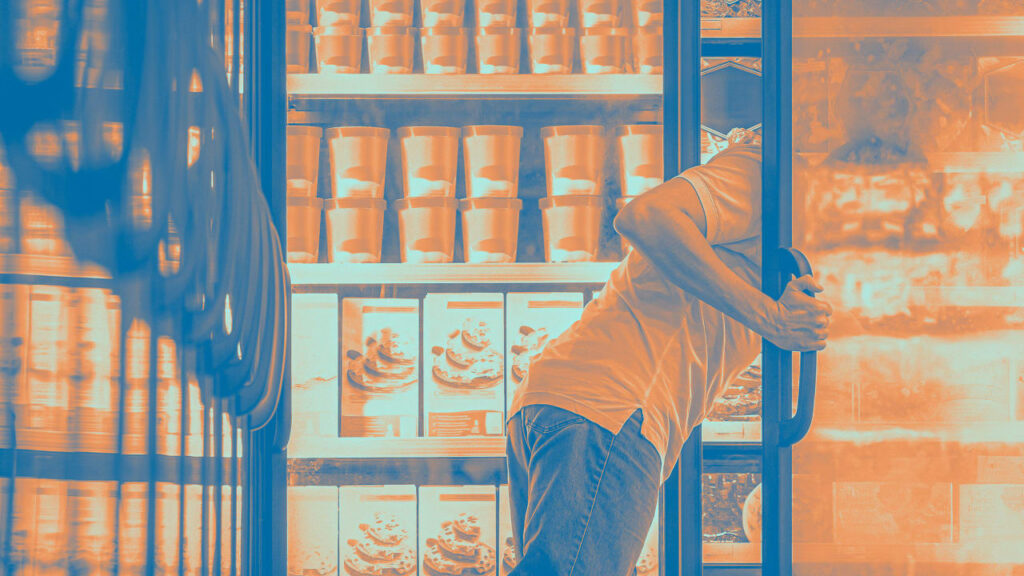
Supermarket fridges and freezers are a significant source of global warming pollution. And according to the Climate-Friendly Supermarket Scorecard, few stores are doing enough to address the problem.
Most stores use refrigerants called HFCs. They’re highly potent global warming gases.
Mahapatra: “For that reason, we need to eliminate our reliance on these super pollutants.”
Avipsa Mahapatra is with the nonprofit Environmental Investigation Agency. Every two years, the group scores the largest supermarket companies in the U.S. on the steps they’re taking to reduce HFC leaks and switch to natural, climate-friendly refrigerants.
This year, Aldi got the highest marks. The chain uses natural refrigerants in about 30% of its U.S. stores and has committed to using them in all new and existing stores by 2035.
Mahapatra: “So that’s a big commitment. It’s also the first U.S. company in this sector to set this target.”
And Meijer stands out for its low rates of HFC leaks.
But most companies—including Walmart, Costco, and Trader Joe’s—received low marks.
So Mahapatra says these companies should do more to help reduce the global warming caused by keeping food cold.
This article first appeared on Yale Climate Connections and is republished here under a Creative Commons license.
—Sarah Kennedy, ChavoBart Digital Media






